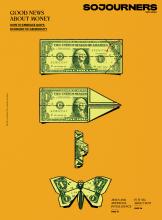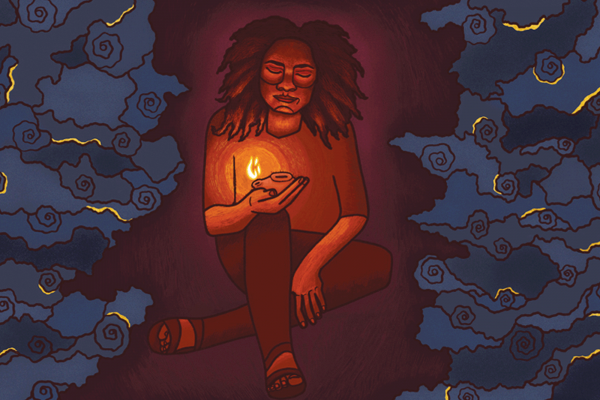ACROSS THE UNITED STATES, people will soon be preparing for Thanksgiving. We’ll name what we’re grateful for and then, in an ironic turn, let “Black Friday” convince us we need more. “Cyber Monday” will catch all the credit cards that made it, un-maxed, through the weekend. “Giving Tuesday” lets us pay the virtue toll to keep spending guilt-free on the yet-to-be-named following Wednesday. Whew! The consumerist drive in November and December makes the temporality of liturgical living difficult. But let’s try. November marks the end of both Ordinary Time and the church year. Ordinary Time is the day-in, day-out rhythm of everyday life as we await Christ’s second coming. In these final weeks, we’re not quite waiting on Christ, then — as we do during Advent — so much as we’re preparing ourselves to wait.
Come Advent, the scripture readings will be filled with anticipatory hope. But, as the old church year ends, the passages are full of anxiety and dread. The Hebrew Bible selections spotlight the escalating threat of the coming judgment. Paul’s letters pour out end times panic. Or, as songster Leonard Cohen put it, “Everybody knows it’s coming apart.” In Matthew’s gospel, Jesus forces us to ponder which side we are on. It’s not easy to sit with all this. I want to skip over to Advent hope (or even Christmas joy). But I invite us to hospice the old year’s death throes before welcoming new life at the stable door.
Read the Full Article

